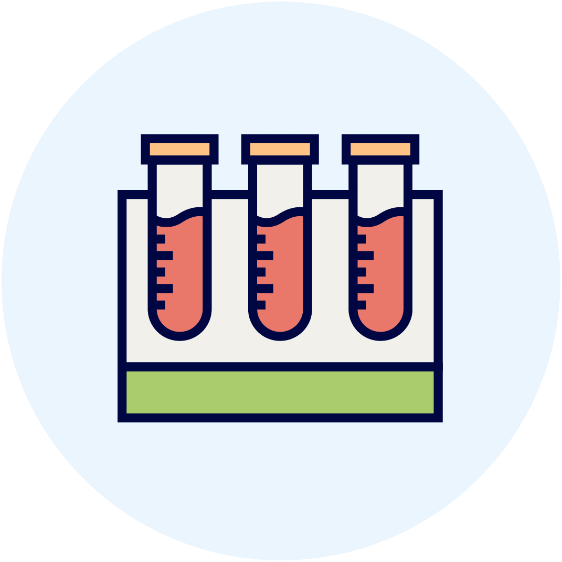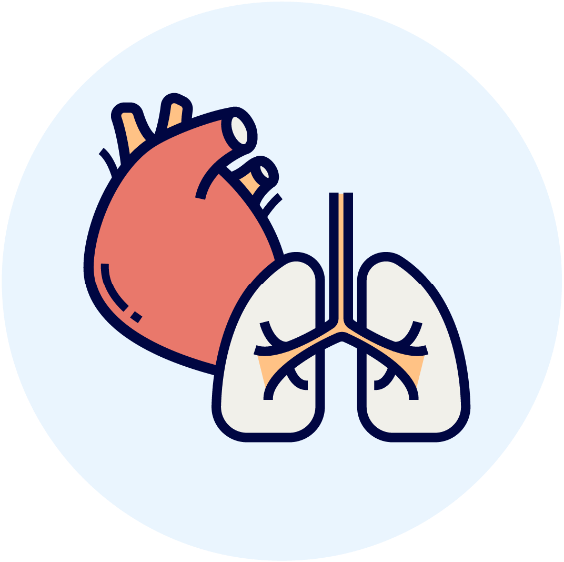- You have the power to save 8 lives through organ donation and heal 125 more through tissue donation.
- Saying “yes” to saving lives takes less than two minutes, and it means the world to countless people.
- After registering as an organ, eye and tissue donor, please inform your loved ones of your donation decision.
- You have the power to save 8 lives through organ donation and heal 125 more through tissue donation.
- Saying “yes” to saving lives takes less than two minutes, and it means the world to countless people.
- After registering as an organ, eye and tissue donor, please inform your loved ones of your donation decision.
The Statistics
More than 100,000 people are waiting for life-saving organ transplants in the United States, including 2,500 Ohioans.
A new name is added to the national transplant waiting list every 8 minutes.
16 people die every day waiting for their gift of life.
More than 40,000 lives are saved through organ donation every year, and more than 2 million people benefit from tissue transplants annually.
One person has the power to save 8 lives through organ donation…
...and heal 125 more through tissue donation.
Frequently Asked Questions
Yes. Every effort will be made to save someone’s life, regardless of their choice to donate. The medical staff dedicated to saving lives at hospitals is separate than those who coordinate donation. It is only after all life-saving efforts have been exhausted that donation becomes an option.
Yes. Organ recovery surgery is a very careful, respectful procedure, and if an open-casket funeral was possible before donation, it should be possible afterward.
No. All costs associated with donation are the responsibility of the organ and/or tissue recovery organization. A donor family is only responsible for hospital charges until death is declared and for funeral expenses.
Probably not. All major religions in the United States either encourage donation, viewing it as a generous last act of charity, or leave the decision up to the individual.
Not necessarily. The oldest organ donor was 98, and people with histories of diabetes, cancer and other diseases have still been able to give the gift of life. It is important to register as a donor regardless of age or health conditions, as medical professionals will determine whether someone’s organs and tissues are healthy enough to transplant after death.
No. Organ donation does not discriminate. Who you love does not affect your ability to donate life.
No. The National Organ Transplant Act makes buying and selling organs illegal in the United States.
Yes. Life Connection of Ohio does not facilitate living donation, but you can learn more here.
No. The national transplant waiting list exists because everyone must wait on it, regardless of wealth or celebrity status. The only way to move to the top of the waiting list is to be extremely sick.
The donor and recipient must be medically compatible, so blood type, body size and age are considered. Urgency of need, length of time on the waiting list and geographic location are also factors, but race, gender and wealth are not.
Yes. Race and gender are not considered in the matching process.
Brain death occurs after all brain activity permanently stops. Brain death is irreversible, making it a legal definition of death. The time that someone is pronounced brain dead is the time recorded on their death certificate.
Organs that can be donated after death include the heart, kidneys, liver, lungs, pancreas and small intestine. Tissues that can be donated after death include bone, corneas, heart valves, ligaments, skin, tendons and veins.
When someone registers as a donor, that decision is legally binding for those 18 and older. If someone under the age of 18 dies and has the potential for donation, their decision to donate can be revoked or amended by their parents or legal guardians. Regardless of someone’s donation decision, it is important to have family discussions so wishes are known.
Online
- All you need to say “yes” to saving lives is a valid Ohio driver’s license or state identification card.
At the BMV
- Say “yes” when obtaining or renewing your driver’s license, state identification card or vehicle registration.
By mail
- Say “yes” through an Ohio Donor Registry enrollment form. Brochures can be found at any BMV or at our offices.
- You have the power to save 8 lives through organ donation and heal 125 more through tissue donation.
- Saying “yes” to saving lives takes less than two minutes, and it means the world to countless people.
- After registering as an organ, eye and tissue donor, please inform your loved ones of your donation decision.
The Donation Process
Less than 2% of people die in a way that allows organ donation to be possible, so Life Connection of Ohio is focused on maximizing every gift.

Hospitals contact Life Connection of Ohio to provide notification of every death.

The Organ Recovery Coordinator on call receives information about the person and determines whether they are medically suitable for organ, eye and/or tissue donation.

If the person is medically suitable for organ, eye and/or tissue donation, then the Organ Recovery Coordinator obtains the person’s wishes from the Ohio Donor Registry, if available, and a Family Services Coordinator consults the family.
If the person’s wishes are not available, the Family Services Coordinator offers the opportunity for donation to the family.

If the decision is made for donation, the person’s medical/social history, blood tests, and other medical evaluations are coordinated to determine which organs and/or tissues can be donated.

The matching process begins.

Once recipients are identified, the Organ Recovery Coordinator communicates with the surgical team. Organ recovery is a respectful procedure completed by a specialized surgeon.

THE END RESULT:
A donor hero is honored for their generosity, a family is supported through Life Connection of Ohio’s aftercare program and recipients gain second chances at life.